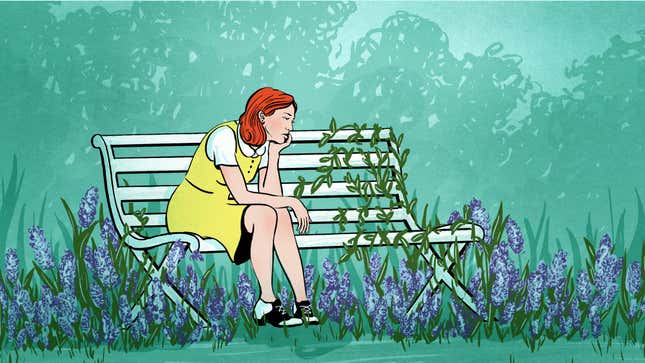How Do You Grieve a Friendship When You Never Wanted to Let It Die?
Latest

On a hot August day on the campus of a small school in the hills of Santa Barbara, I met the person who would become my best friend.
We had been randomly assigned to the same cohort during freshman orientation. A couple of girls in our group—blond, tanned, and so over it—snuck out to go to the beach while the rest of us talked about dorm life, how we felt, where we came from. I couldn’t fathom such independence and defiance in the early days of college, when I was anxious about everything, grateful for any semblance of structure.
M was from Texas, although her family had moved around. She was striking—tall, tan, with dark brown hair and eyes—and immediately friendly, like a camp counselor you’d try not to be intimidated by. I was trying, hard, to cover my anxiety with a veneer of confidence those first few days of college; there was something about her that made it easier. We became friends slowly, over the course of lunches in the dining commons and dorm room visits. We took the school’s shuttle downtown and got rides from upperclassmen to the grocery store or Butterfly Beach in Montecito. She was the first person I told when I was accepted to be an RA and the first one I asked to come and meet the young women in my section. We drove to Seattle that summer and taught ourselves all the words to “Ghetto Superstar.”
The next year we settled into our dorm rooms. We were sophomores with cars and hope and wisdom, and Santa Barbara was the other character in our friendship. Our college, a small, Christian school of 1200 students, was tucked up in the hills of Montecito. You can see the ocean from campus as blue as a sapphire; from the library, the baseball diamond, the corner of the science hall’s balcony, you can see the Channel Islands rising starkly 20 miles out to sea. Now that we had cars on campus, we went for aimless drives, often in her Cabriolet, often down Cabrillo Street, which runs alongside the gentle surf of the Pacific. Late at night, we would turn the heater up and put the top down and listen to the Garden State soundtrack, and it felt electric to me, a freedom in friendship I had never experienced before. In the mornings, we would drive to a local bakery before class to get cinnamon rolls and coffee.
We had all the time in the world, buckets of it, running off of us, unfolding itself ahead of us. When you’re 19 and invincible and going to school in the most beautiful setting on earth, there is no end to your dreaming.
-

-

-

-

-

-

-

-

-

-

-

-

-

-

-

-

-

-

-

-

-

-

-

-

-

-

-

-

-

-

-

-

-

-

-

-

-

-

-

-








































